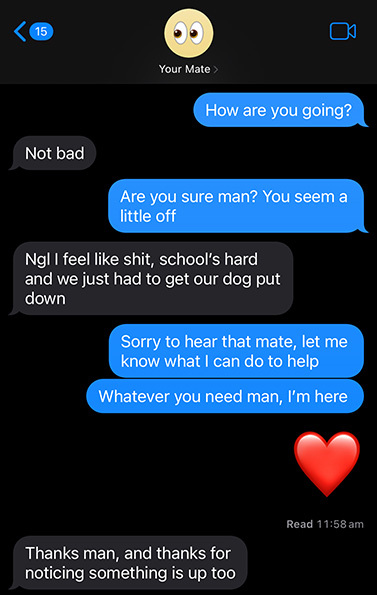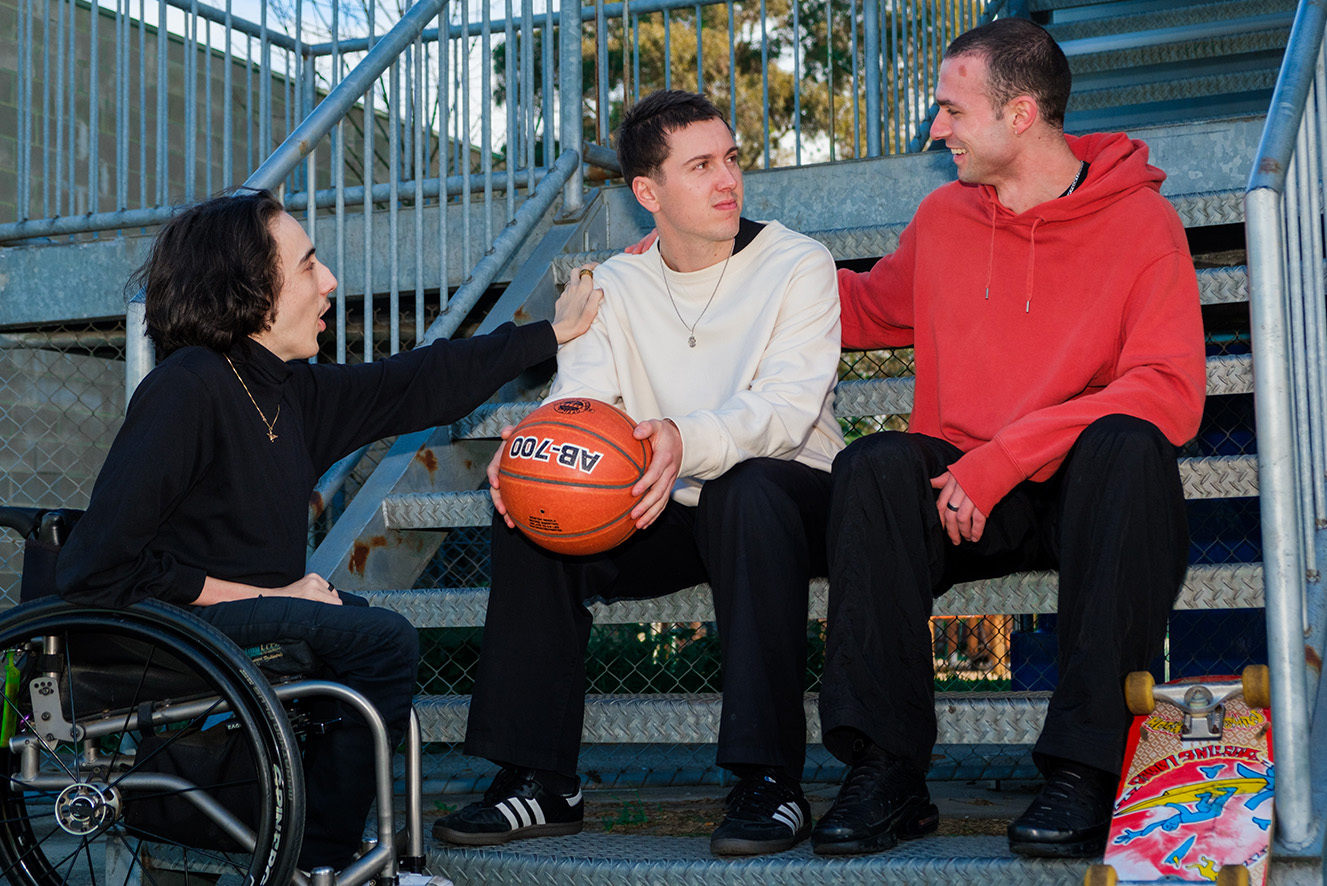Empathy is understanding somebody else's situation or emotions, even if they're new to you.
You’ve probably heard that saying, ‘Put yourself in their shoes’. Yeah, that’s empathy.
There are levels to it, so it’s not like you’ve got it, or you don’t.
Having empathy helps us relate to other people and helps us understand how they experience the world.
Why is empathy important in relationships?
Relationships are all about people understanding and supporting each other, whether it’s your relationship with your partner, your mates, your family, your workmates, or anybody else.
Empathy plays a huge part in all of our relationships, and contributes to having strong and meaningful connections with people who are important to you
How it plays out in your life might be in a standard convo with your mate like this:

It could be the difference between connection and isolation.
Here are 3 top tips to be more empathetic.
Step 1: Ask Open-Ended Questions
If you want to understand someone’s experience or circumstance, give one of these a go:
‘What’s been happening in your life lately?’
‘How have you been feeling?’
‘Tell me about what’s going on, I’m here to listen.’
Step 2: Believe What People Tell You
When someone tells you they feel a certain way, it is important to let them know you believe them.
Often, when someone says, ‘That’s really offensive’, our first response is to be defensive and say something like, ‘No, it’s not’.
But for that person, with their life experiences and with the added nuance of whatever might be happening intheirlife, it is offensive and hurtful.
Try to make believing (rather than disbelieving or doubting) your default when listening to someone open up about their experience or feelings.
It might be as simple as just nodding now and again as you listen or offering a ‘Yeah, I hear you’.

Step 3: Put Yourself in Their Shoes
If someone has a different gender, sexuality, race, age, education/employment status from you, imagine walking in their shoes in as many ways as you can.
Start asking how you would feel if you were them, rather than being you, hearing the same thing.
Look at these everyday examples
What does the phrase 'Please board the plane using the rear steps’ mean to you?
What would it mean if you were a person who uses a wheelchair?
How about, ‘Australia Day celebrates the settlement of Australia’?
Try to imagine you’re an Aboriginal or Torres Strait Islander hearing that and being told that nobody lived in Australia before white people arrived.
What about, 'You kick like a girl'?
It sounds very different depending on your gender, right?
The Benefits of Thinking About Empathy More
Without empathy, we can be quick to judge other people harshly, and less likely to help everyone around us have a good time.
Without empathy, it’s hard to have genuine respect for others and their opinions.
But with empathy, we can all be that little bit nicer, little bit more patient, and develop deeper and more meaningful connections with the people around us.





